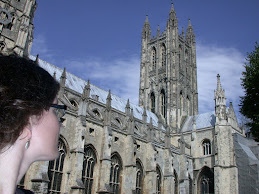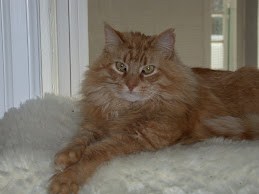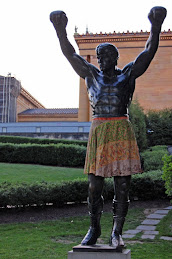In 1982, Ian McKellen entertained a live audience for 1 hour and 26 minutes performing select speeches from various Shakespeare plays: Hamlet, Romeo & Juliet, Henry IV Parts 1 & 2, Henry V, MacBeth, Tempest, King Lear.
I was particularly struck by ihs rendition of Act 2, scene 2 where Hamlet asks the Player to perform the death of Priam and then the succeeding soliloquy. The scene is all about Hamlet thinking about how the Player so gets into his role that he actually cries. Hamlet wonders how the Player can cry over Priam when he is not Hecuba and that he Hamlet is so distanced and unemotional when his own father has been murdered.
At the beginning of the soliloquy as I watch Ian McKellen perform, I realize that Shakespeare is telling the people how they should behave as an audience, how they should enter into the world of the characters and respond to their dilemmas.
Why had I not noticed this before? I think it was because as I watched this old dvd of McKellen's one man snow, I was struck by the artificiality of what McKellen was doing as he introduced each character and scene, acted the speech, and then wove in facts about Shakespeare's life and Elizabethan England and London.
His performance of Polonius listing the actor's repertoire was hilarious -- and that is something I barely read finding it too tedious.
I am watching this section of the dvd again. McKellen sits in a plush brown velvet chair as Hamlet, and then stands up when he becomes the Player reciting the murder of Priam by Pyrrhus and the grief of Hecuba, the mobiled queen. When he sits down again in the chair, his entire demeanor changes and he becomes the suddenly ashamed and hyper-critical Hamlet.
McKellen wears grey pants and a blue shirt with the buttons half undone down his chest. His hair is air blown without any grey and his face is craggy with pronounced cheekbones and thin sensitive lips. His face is free of wrinkles except around the eyes and sketched on the forehead. His blue eyes recede and blaze with emotion occasionally. When he says "vengenance," he raises his voice to a shout and his clenched hands to the heavens. He rubs his temples when he says "brain" and then has the suddenly inspiration of how to trap the conscience of a king.
Bob has a small poster of McKellen from this production. He always spoke of watching this of PBS and wishing to have a copy to share with this students. While it is quite good, I think the students would prefer to see excerpts since they might find the style a little old-fashioned.
Footnote: He has a great Scottish accent version of Macbeth's speech "Life is but a walking shadow." He then summarizes the progress of Macbeth as a character from the play's beginning to the end.
Subscribe to:
Post Comments (Atom)










No comments:
Post a Comment